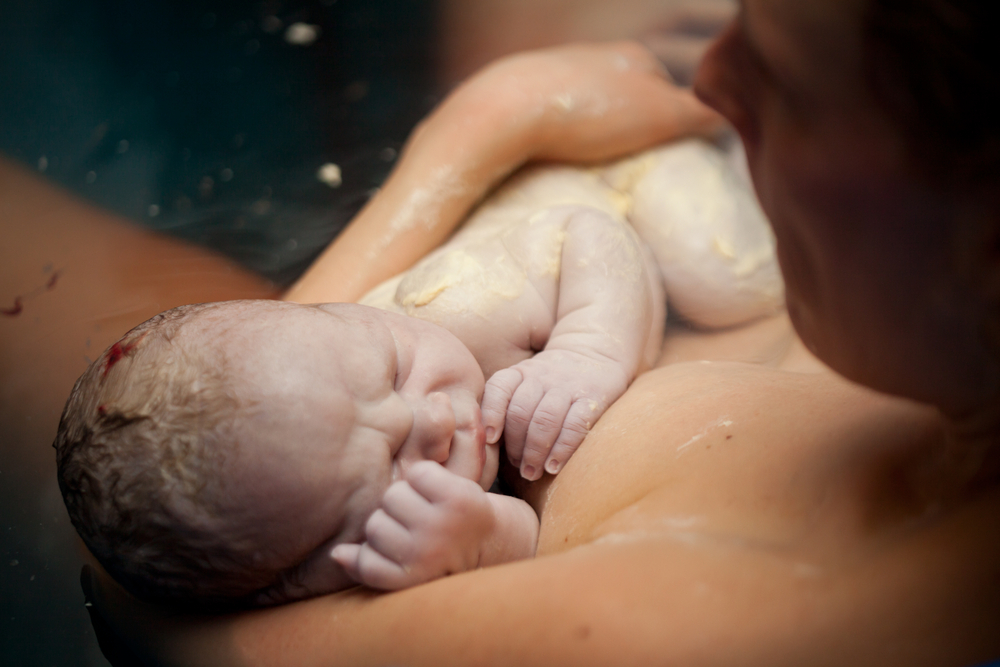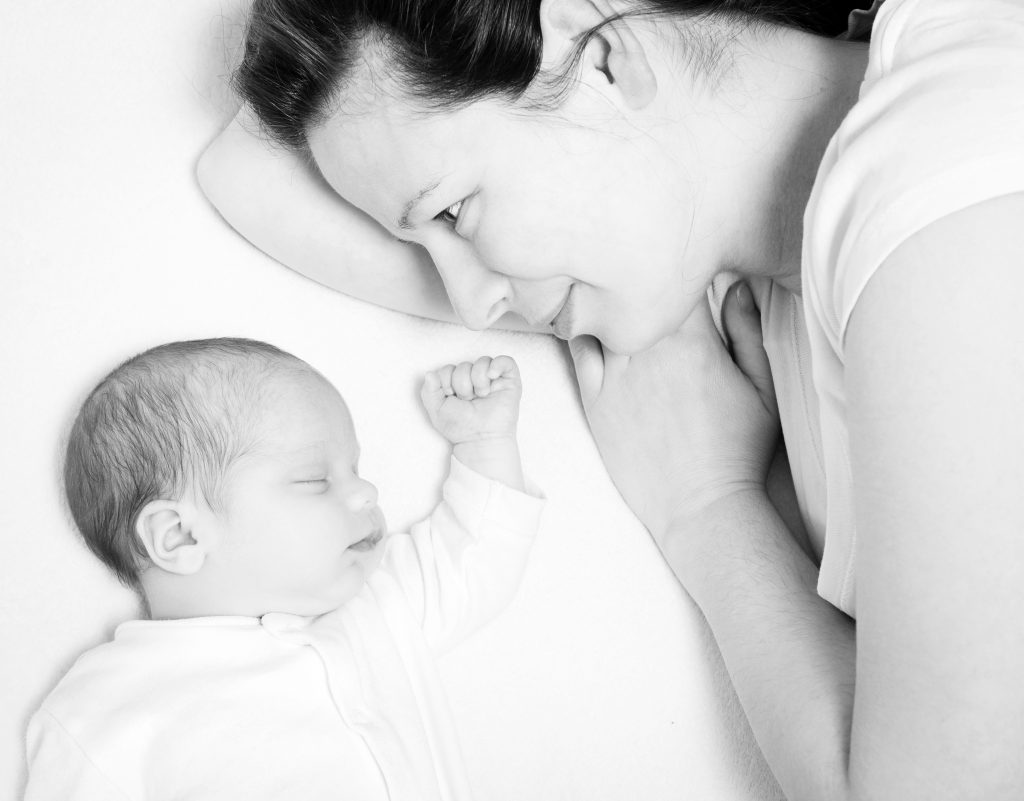Category: Postpartum
Being a Dad in the Postpartum Period
In our last article we talked about the important role a dad has in the birth process. But what happens when baby comes home? This can be a tricky time for dads, who might feel out of their depth, or think there is not much they can do to help. Nothing could be further from the truth. Your partner and baby need you now more than ever. So let’s take a look at some of the things you may be facing, and what you can do to help.
Sleep Planning
Parental sleep and new babies don’t usually go hand in hand, so you need to have a plan.
Try and work out a routine that allows you both a bit of real rest. Even if mum is breast feeding there are ways you can help. Perhaps you could do every second nappy change and settling during the night, so mum doesn’t have to get up every time, or you might take all the changes/settlings before midnight. Decide what works for you.
Don’t underestimate the power of the nap. If the weather is good, take baby for a walk for an hour and give mum time for an uninterrupted nap. Any time mum can sleep without keeping one ear open for baby is like gold.
And always remember, mum is not only sleep deprived, but is recovering from growing and birthing a human, not to mention producing milk for said human. She needs all the rest she can get.
Be the Housekeeper
Sadly, household chores don’t go away when you have a new baby. Do as much of the cleaning, washing, shopping and cooking as you can. And let her know you’re on top of it so she isn’t left worrying that it’s not getting done.
The first month or two is the ideal time to get help around the house – either ask friends or family or hire a cleaner. A Postpartum Doula will also help with light housework and cooking.
Feed Her
It takes a lot of nourishment to produce milk for a baby. Make sure she is getting the nutrition she needs. If cooking is not one of your superpowers, don’t be shy in asking friends and family to help. Alternatively, a good Postpartum Doula can provide you with specially designed meals for the breastfeeding mum.
The value of a snack and something to drink while she is feeding baby cannot be over-stated.
Be the Gatekeeper
Take it upon yourself to make sure well-wishers don’t overstay their welcome. If mum looks tired, send them on their way. Try to make sure you always have something on hand to feed and water the inevitable visitors. And clean up after they leave.
Be Actively Present
Yes, you may have had a hard day at work and want to come home and relax. But mum has had a hard day at home taking care of your baby with little or no support. So when you get home, roll up your sleeves and pitch in. Not only will your partner appreciate it but caring for your baby presents a great bonding opportunity.
Take Ownership
Don’t do the ‘Would you like me to cook dinner? What would you like?’ thing. Take ownership. “I’ll cook dinner. How about [insert your signature dish here]?’ The same goes for all the household chores. Notice what needs to be done and just do it. And do it properly – squirting bleach in the toilet and saying you’ve cleaned the bathroom just won’t cut it!
A word about the Baby Blues
It is normal for mums to feel down after the birth of a baby. Hormones combined with exhaustion can have a negative effect on mood. But it is important to monitor whether mum’s mood is normal baby blues or has tipped over into Postpartum Depression. If you feel this might be the case, seek help from a professional as soon as possible.
It is not only mums who suffer from the baby blues. One in four men suffer from some degree of depression after the birth of a baby. So be aware of your own mental health and seek help if you need it.
Help is at Hand
Being a new parent is hard on both mums and dads. You are trying to learn a new job, whilst at the same time being sleep deprived and hormonal. Finding someone who can help support you in this transition from partners to family can be invaluable.
A Postpartum Doula can help you with just about any of the tasks you will need to be on top of, and at the same time brings a wealth of experience and knowledge that will help you master some of those things which you have had no experience with before.
If you would like to talk about the benefits using a Postpartum Doula can provide I would be happy to chat. Contact me on 0422 258 771 or:
When Fur Baby Meets Human Baby
Before we have human children it’s not unusual to treat our pets as ‘fur babies’. Whether you have a cat, a dog, or both, they are part of our family naturally and have a special place in our hearts. But when human babies come along things often have to change, and it is not uncommon for our fur babies to get stressed, anxious and jealous. After all, they don’t understand why they are no longer your first priority. There are a few things you can do to reduce any negative impact the arrival of your human baby might have on those furry ones, and to keep your human baby safe.
Start Early
It is important to start thinking about the changes you will need to make early on in your pregnancy. Ideally, by the time you are around 4 months pregnant you should be gradually introducing those changes. If your pet associates the changes in its life to the coming home of the baby it may set up a jealous reaction, so start slowly and early so your pet doesn’t make that connection.
For Dogs and Cats
There are a few things you might like to consider whether you have a dog or a cat:
- Animals have a much keener sense of smell than humans, and when baby comes home there will be all sorts of new smells – talcum powder, baby lotion, baby wipes. In the months before you give birth, rub some of these things on your legs while you are home so your pet can get used to them. When these unfamiliar smells blend with your familiar one, your pet will get used to them quickly.
- Babies can make a lot of noise, and if your dog or cat is unfamiliar with a crying baby it can create fear or anxiety. Try playing recordings of babies crying in the months leading up to your labour. As with all this advice, start slow – just a minute or two – and build up your pet’s resistance. Happy by-product – it will build up your resistance too!
- If you have friends with babies, ask them to bring them over and introduce them to your pets so they are familiar with the look of a baby, and all the paraphernalia that goes with them.
- If you feed your fur baby in the house, think about where that food (and the litter tray if you have a cat) is situated. It if is somewhere baby will be using, gradually move it until it is somewhere baby won’t be able to get to, and your pet will feel secure in the safety of their food.
Dogs
- Think about who your dog is most attached to. If it is you, try to develop a deeper relationship between your dog and your partner or another family member who will be able to focus on the dog when baby comes home.
- Think about your routine – if you walk the dog twice a day, will this be sustainable once baby comes home? If not, and you decide you will have to drop down to once a day for a while at least, start your new routine now. Don’t suddenly go from two walks to one, but maybe only one walk every third day, then every second, until you feel your dog is OK with one.
- Does your dog sleep on the bed with you? Find an alternative to this early. Even if you don’t plan on co-sleeping with your baby, there will probably be times when the baby will end up in your bed – if only so you can get some sleep yourself. Having a dog in the bed with a baby is not ideal, especially if it is a big dog.
- Think about where your baby’s play area might be. Baby’s need ‘tummy time’ from very early on, so set up your ‘exclusion zone’ early so your dog knows where it is not supposed to go. Baby gates can be good for this. If that’s not possible think about a playpen for baby.
- If your fur baby is a jumper, think about some training, particularly if it is a big dog. The last thing you want is your baby to come to any unintended harm while you are holding them.
Cats
Cats can be little trickier than dogs. Not only are they less ‘trainable’ but they are able to get into places that dogs just can’t. This makes them harder to manage with a new baby.
- Probably the most important thing to bear in mind is that a cat should never have access to where your baby is going to sleep. Cats have a way of curling up where it is warm and comfortable, and if they decide that is beside your baby’s face it could have tragic consequences.
- Cats are very sensitive about smells, and new things coming into the house – like cots and prams – can cause them to feel they need to mark their territory. As soon as you introduce an item, run a clean cloth over your cat’s head, and then wipe it over the legs of the pram, cot, or change table. Putting their scent on it will let the cat know it is safe.
- You may like to invest in a cat pheromone diffuser. You can get them from any vet. This will disperse harmless cat pheromones into the air which keep kitty calm. It’s the cat world equivalent of a lavender candle!
- Make sure your cat has somewhere safe they can go to get away from baby once it starts moving. If you feed your cat in the laundry, can you install a cat-flap in the door? Your cat will feel much less stressed if it feels it has somewhere safe to hide.
Introducing your Babies
If you have had a hospital or birthing centre birth it is possible you have been away for a couple of days, and your pet will have missed you. Ask your partner or another family member to hold the baby while you greet your fur babies so that you can give them your undivided attention.
Once they have settled down after seeing you again, introduce baby. Try and do it on neutral territory – the front yard or porch is often good. Make sure both baby and pet are held securely, with dogs on a lead, and let your pet smell the baby. Give them lots of praise (and a treat) if they respond well, but don’t force it if they give baby a quick sniff and then turn away. Some will take a little more time to get used to the new addition than others.
Finally…
As much as we love them, it is important to remember that our fur babies are animals. No matter how much you trust them, never leave them alone with your baby. All it takes is for baby to reach out and innocently pull an ear or tail and things could go horribly wrong. Stick to supervised visits until your baby is old enough to know how to touch your pets.
If you are pregnant and would like more information on how to manage the introduction of a baby into your life, or you have any questions about pregnancy, birth and the postpartum period, I would love to chat. Give me a call on 0422 258 771 or get in touch:
Do’s and Don’ts of Co-Sleeping
There are few parenting topics more hotly debated than the subject of co-sleeping with your baby. Many paediatricians, clinic nurses and family members will tell you that it is unsafe. They suggest you might roll onto your baby and smother them, or that there is an increased risk of SIDs. In fact, all the recent research shows this is untrue. There are some great benefits to both parents and babies in co-sleeping, if you do it correctly. Here is a little about co-sleeping, and some essential do’s and don’ts.
What do we mean by co-sleeping?
The broadest definition of co-sleeping is that baby and parent sleep ‘within sensory reach’ of each other. For some people, this means baby sleeping in the bed with them, others may prefer baby in a basket between them on the bed, and for some it may mean a bassinette or cradle within reach of the parents’ bed.
There are slightly different considerations for baby’s sleeping on the same surface as parents to those sleeping in their own bed within sensory reach. However one thing is common – a baby should never sleep in the same room as a smoker. This has been identified as a significant increase in the risk of SIDs, so if you or your partner are smokers, baby should have their own space.
Benefits of Co-Sleeping
According to James McKenna[i], co-sleeping is ‘biologically appropriate’ given the dependent nature of human infants. In McKenna’s research, co-sleeping, particularly safely on the same surface – has been shown to:
- Help synchronise heartbeat, brainwaves, breathing rate, oxygenation, and temperature of babies and parents, strengthening the parent/baby bond
- Because both babies and parents sleep more lightly and rouse more frequently, dangerous periods of apnoea (related to SIDs) are interrupted
- Lighter sleep is associated with REM sleep, which is vital in brain development in infants
- Both parents and babies slept longer, decreasing exhaustion
- Fathers who sleep close to their baby show a decrease in testosterone leading to improved sensitivity and responsiveness in parenting
- Small studies suggest babies who co-sleep go on to develop early signs of independence in dressing and problem resolution
Same Surface Co-Sleeping versus Sensory Reach
Same Surface Sleeping
The most beneficial form of co-sleeping is same surface sleeping, where baby sleeps in your bed with you. Studies show that although this form of sleeping causes lighter sleep with more waking, the quality and quantity of sleep for both baby and parents is improved, not least because there is less disruption for both mother and baby. However, you need to make sure your bed is safe for baby:
Do’s
- The surface should be smooth and solid – no waterbeds or sheepskin underblankets
- Ensure there is not a gap between your bed and a wall in which the baby can get trapped
- Avoid heavy blankets, doonas or excessive amounts of pillows that may overheat or suffocate baby
Don’ts
- If you or your partner are heavy drinkers, drug users or take sedatives, it is not a good idea to co-sleep on the same sleep surface as you may not be as aware of your sleep positions as a lighter sleeper
- Babies should not co-sleep with older children – even toddlers – or pets
- Never leave your baby alone on an adult bed – it’s amazing how quickly they learn to roll over!
- Wrapping or swaddling your baby when you are co-sleeping on the same surface is not advised
If any of these present a problem, consider sensory-reach co-sleeping as an alternative.
Sensory Reach Sleeping
Sensory reach co-sleeping refers to baby sleeping in their own ‘bed’, within reach of yours. If this is your preference, you should follow general sleep instructions:
- always put baby on their back
- avoid soft mattresses and pillows
- avoid heavy blankets
- swaddle or wrap baby if you and your baby prefer
Who Wakes Who?
Interestingly, co-sleeping studies conducted by James McKenna suggest that babies wake their mothers 60% of the time, but mothers wake their babies 40% of the time. When mums wake their baby it is with touches, hugs and whispers. This loving attention increases the heart rate and oxygenation of the baby, and reduces the risk of apnoea. It also reduces stress and cortisol levels in both mother and baby.
Co-Sleeping and Breastfeeding
Co-sleeping and breastfeeding are a match made in heaven. Research by The SIDs Global Task Force suggests that while safe co-sleeping reduces the risk of SIDs, when it is combined with breastfeeding the risk is even lower.
The benefits of safe co-sleeping are also amplified when baby is breast fed. Disruption to sleep is minimal, and studies show the position in which most mums feed their baby actually provides the optimally safe space – baby’s face at breast level, mums arm between baby’s head and the pillow, legs bent.
If you would like to find out more about the benefits of co-sleeping – or any other pregnancy, birth or postpartum issue – I would love to chat with you. Give me a call on 0422 258 771. or contact me here:
[i] Director Emeritus of the Mother-Baby Behavioural Sleep Laboratory at Notre Dame University

Having a Baby During Covid
Becoming a mum is the most joyous thing in the world, but there are always concerns that trouble you. Will the baby be healthy? How will I cope with labour? Will I be able to breastfeed successfully? These are all natural and normal concerns for expectant mums. This year, though, there is an additional worry. Covid 19. And it’s not something we can turn to our support network to help us with, as nobody has experienced this before.
I always feel that knowledge is power, so let’s take a look at some of the things that might be worrying you, and some of the things you might like to think about in the months leading up to your birth.
Risks to you During Pregnancy
First and foremost, there is no evidence that pregnant women are any more at risk of Covid 19 than the general population. That said, Covid 19 is a respiratory disease which affects your breathing, and if you do contract Covid 19 this could affect your ability to manage your breathing during labour. So what should you do?
- Follow normal hand washing and social distancing protocols
- Wear a mask when out and about
- Avoid crowds and close contact as much as possible
- Avoid hugging and physical contact except for your immediate family
- Talk to your employer about taking additional care in your work environment
A little extra care now might save you some difficulty when it comes to giving birth. And if you are feeling unwell – get tested right away. The sooner you know the sooner you can make informed choices.
Birthing Plans
Whether you have chosen to have a hospital or home birth, it is not necessary to change your plans. However, you should be aware that there have been changes in the way hospitals manage birth and postnatal care, which may or may not have you reconsidering your options.
Hospital Births
Hospitals have always had very good infection control policies, and this is particularly the case in maternity wards. Medical staff are very aware of the need to protect young babies and new mums. Covid 19 has meant that new measures have been introduced, on a hospital by hospital basis. Some of these changes include:
- The number of support people you are allowed during labour and delivery has been reduced.
- Water births have been terminated or discouraged in some hospitals.
- The number and nature of visitors allowed during your postpartum stay has been reduced. Some hospitals are discouraging children from visiting and limiting all visitors to immediate family.
- In-home postnatal care is increasing, so mums and babies are being sent home as quickly as possible.
- Zoom is being used to provide both antenatal and postpartum care as well as birthing education classes.
Since changes that have been introduced are hospital specific, and are changing all the time, you should check with your intended hospital what their current rules are on delivery and postnatal care.
Home Births
The number of women in Australia considering home births has risen from around 4% to about 25% this year. Women are understandably nervous about being in a hospital with so many people coming and going.
Currently there are no Medicare rebates for midwives attending a home birth, although you can get a rebate on home based Pregnancy care and Postpartum care. Some private health insurance will cover home births, so you should check with your provider if you are considering this option.
A great resource for home birth information is Homebirth NSW https://www.homebirthnsw.org.au/
Because of the increase in demand, if you are considering a home birth, contact your chosen midwife early to make sure they are available to support you.
How a Doula Can Help
A doula’s role is to support mum, partner and baby. Despite changes in hospital protocols and the increased level of anxiety and isolation caused by lockdowns, we are still here to do just that, and will ensure that even though your birth might not look quite how you originally imagined, it will still be a joyous and special event.
During pregnancy a Doula can help you prepare physically and emotionally for the birth, so when that incredible time comes you feel empowered by the knowledge you have gained.
If your hospital has restricted the number of people allowed at your birth a doula can provide you with a letter outlining the reasons you require a doula for the hospital to consider. Should your doula not be allowed in the birthing room, phone and video call support is always available.
Your doula will support you in labouring at home as long as you can, to reduce the length of time you are labouring in the hospital.
With postnatal hospital stays being reduced, good postpartum care is even more important. Your doula will be available to care for you and baby and ensure you both get the rest and nourishment you require in those precious first days and weeks.
This might all seem like a lot to consider on top of everything else you are dealing with but you are not alone. Part of the role of the doula is to keep abreast of the constantly changing landscape. They will honestly discuss your options with you and provide you with the information you need to make the decisions that are best for you, your partner and your baby.
If you would like to know more about how Covid 19 might affect you, your baby and your birthing experience, or talk about your pregnancy and birthing plans or concerns, I would love to hear from you so please give me a call on 0422 258 771 or get in touch here:
Postpartum Nutrition
Our third and final blog on Nutrition from Stacy Heckenberg BHSc Nut. Med. – for now at least! – is all about how to take care of your nutrition once baby is born. Good nutrition is important now not only to help you get back on your feet after pregnancy and birth, but to help combat the inevitable sleeplessness, and to make sure you are producing the quality and quantity of milk your baby needs to thrive.
Why Postpartum Nutrition is Important
The big day has come and gone and you are home with your beautify baby. On to the next part of the journey – parenthood! A lot of big decisions happen during this time, all while you are learning about this new little person, managing more changes to your body, and the new normal of your life.
Good nutrition will not only help ensure you have a good milk supply, but will aid in recovery and repair of your body, and help with fatigue and the moods that come with hormonal fluctuation.
Choosing to Feed
Choosing how you are going to feed your little bundle is deeply personal, yet everyone will have an opinion that they are happy to share with you! Whether you choose breast or bottle – FED is best. Some women struggle to breastfeed, others choose not to. As a nutritionist I am here to support either choice.
Breast milk has benefits to both mother and child, it’s easily digested, and less likely to cause tummy upset. But, some women may experience, pain, low supply, excess supply, or suffer mastitis. If you find yourself experiencing any of these issues, Alison can recommend a great lactation specialist who will help you.
What to Eat While Breastfeeding
If you decide to breast feed, but are finding your milk supply is low you might need to increase your sources of what we call lactogenic foods. These are foods, also known as galactagogues, which help your body produce more milk. Things to include are:
- Oats
- Flax
- Nuts
- Garlic
- Fennel
- Fenugreek
- Turmeric
- Ginger
There are also foods you should avoid as they may cause a drop in supply:
- Alcohol
- Sage
- Parsley
- Peppermint
- Vitex
Taking Care of Yourself
This is a busy time, and it is easy to get overwhelmed. Here are a few tips for managing to ensure you get the rest you need:
- Do your grocery shopping online so you don’t have to worry about struggling around the supermarket
- Ask for help with meals – a Doula will always bring you a meal, and will know exactly what you need nutritionally. If you have friends and family perhaps they can drop in the odd hot meal
- If you are making a meal, make double and freeze half for a day when you are tired or just too busy with baby
- Keep plenty of healthy snacks in the house – fresh fruit, cheeses and trail mix are great and easy to eat one handed while you feed baby!
- Often the evenings are unsettled times for babies. So if you have a slow cooker make use of it!
Recipes
Part of my job is to make meal plans that support all stages of conception, pregnancy and postpartum. So I thought I would share a couple of recipes that I love. There are also a couple from Alison that you might like. Check out the Recipes section of the blog to see the recipes.
I hope these suggestions help you make it through that special time in your life. For more ideas go the Healthy Eating Guideline for Pregnancy at www.eatforhealth.gov.au.
Yours in health,
Stacy
www.hillsdistrictnutritionist.com
I hope you enjoyed our Nutrition series. If you have any questions, or want to chat about any aspect of pregnancy, birth or postpartum, message me at:



